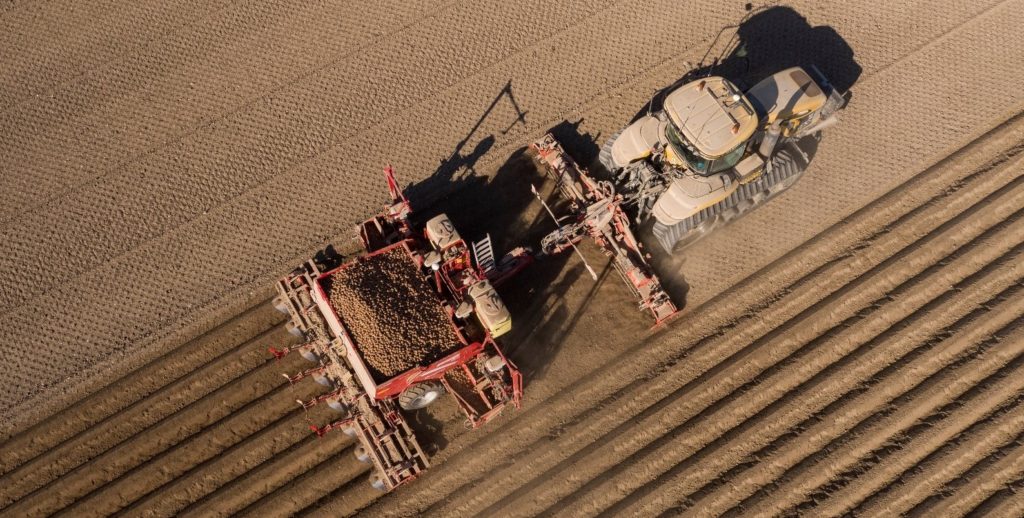Continuing to pioneer innovation, we’ve applied controlled traffic farming (CTF) to our first time growing potatoes in 2019. Since 2010 we’ve been using CTF instead of large scale random traffic across a broad range of crops including sugar beet, and have successfully reduced compaction from 86% to 13% with a 12m system. With sugar beet and potatoes, we usually see about 140% compaction, which we aim to reduce by 50%.
Our Managing Director James Peck has worked extensively over the years with machinery manufacturers to modify kit for CTF. Farming potatoes was no different and saw James teaming up with Grimme and Kuhn to modify the existing kit to work with CTF tramlines to facilitate growing potatoes. CTF improves soil health and reduces clod and soil compaction. This means that there is less need for extra cultivations.
We prepared the soil for potato planting with the 6.00m Horsch Terrano and 6.00m Standen Powavator. Planting was done with the eight-row Grimme GL860 Compacta planter which was sourced from The Netherlands which was used with the modified Kuhn power harrow. We use a 75cm row system instead of 90cm row system mostly found across the UK.
Check out our video of potato planting:

We use precise technology like real-time kinematic (RTK) and GPS for accurate application without overlap across our broad rotation of crops:

The first potato harvest took place with the Grimme Tectron 415 Harvester. Using a self-propelled harvester with running gear reduces compaction and prevents deep ruts.
The Grimme RH 24-60 Clean Loader provided an onsite cleaning operation reducing the need to trailer the potatoes too far. With dryer soils at the beginning of the potato harvest, we used pickers on the platform to remove any clods. Discover our team in action below:

Potatoes were sorted with the Grimme PowerCombi TOMRA Field Potato Sorter and loaded in the store with the SL816 Storeloader and direct to our haulage lorries with the lorry filling attachment.
Our diverse crop rotation allows us to rotate crops throughout the year by combining modern technology with traditional farming practices. Now introducing potatoes into this rotation, we plan to choose potato varieties well suited to the field types. Using Integrated Crop Management helps conserve wildlife havens, enrich biodiversity, improve pest control, soil health, crop quality and yield, and cash flow. We can also simplify labour management and farming efficiencies.

